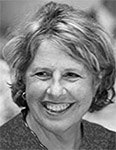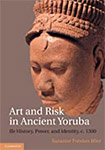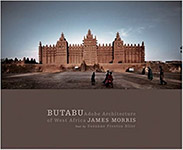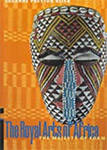The Volunteer Who’s Professional Career Focused on African Art, Architecture & Culture | Suzanne Preston Blier (Dahomey | Benin)
by Jeremiah Norris (Colombia 1963-65)

Suzanne Preston Blier
Dahomey | Benin
Suzanne Preston Blier is an American art historian who currently is a Professor of African and African American Studies at Harvard University. Her interest in African art began when she served as a Peace Corps Volunteer in Save, a Yoruba Center in Dahomey (now Benin Republic) 1969-71.
She began her professional career at Vassar College serving as a lecturer from 1979 to 1981. She then spent the following years at Northwestern University as an assistant professor. In 1983, she began work at her alma mater, Columbia University until 1993, subsequently transferring to teach at Harvard University. In 1988, she was awarded a Guggenheim Fellowship. Soon after, many other Fellowships followed, including from the American Council of Learned Societies, and the National Endowment for the Humanities.
Amidst all these professional engagements, Suzanne managed to write in 2019 Picasso’s Demoiselles, the Untold Origins of a Modern Masterpiece. In 2020, she was awarded the Robert Motherwell Award for an outstanding publication in the history and criticism of modernism in the arts by the Dedalus Foundation. The citation reads in part:
This book uncovers the previously unknown history of Pablo Picasso’s Les Demoisellles d’Avignon, one of the 20th centuries most important, celebrated, and studied paintings … in this profoundly insightful work, Blair fundamentally transformed what we know about this revolutionary and iconic work.
The book was also a 2019 Wall Street Journal holiday art book selection, and was also honored as one of the best books in 2020 by Art Forum.
 In 2017, her book Art and Risk in Ancient Yoruba: Ife History, Power and Identity circa 1300 won the PROSE Award in the same Art History and Criticism category. Her 2004 book, Butabu: Adobe Architecture of West Africa with photos by James Morris,
In 2017, her book Art and Risk in Ancient Yoruba: Ife History, Power and Identity circa 1300 won the PROSE Award in the same Art History and Criticism category. Her 2004 book, Butabu: Adobe Architecture of West Africa with photos by James Morris,  was named a “Best of Year” book selection by the Washington Post and was selected by the New York Times Book Review for inclusion in its Holiday Selection that year.
was named a “Best of Year” book selection by the Washington Post and was selected by the New York Times Book Review for inclusion in its Holiday Selection that year.
 Another of her books, released in 2012, The Royal Arts of Africa, the Majesty of Form, a Choice Award winner was translated into five languages and is a leading textbook in the field.
Another of her books, released in 2012, The Royal Arts of Africa, the Majesty of Form, a Choice Award winner was translated into five languages and is a leading textbook in the field.
In 2011, two of her articles, “Imaging Otherness in Ivory: African Portrayals of the Portuguese ca 1492,” and “Kings, Crowns and Rights of Succession: Obalufun Arts in Ife and Other Yoruba Centers” were selected for inclusion in The Centennial Anthology of the Art Bulletin, comprising the 33 top articles over the journal’s 100-year history.
Suzanne’s interest in mapping led to the creation of the electronic media project “Baobab: Sources and Studies in African Visual Culture.” This project was established at Harvard in 1993. It represented one of the largest academic studies of African art. It led to the creation of AfricaMap in 2007, a website that seeks to bring together the best available cartographic data on the continent in an interactive GIS format (Global Information System). Using this System, it is easier to demonstrate how an issue affects different populations and geographic areas. In 2013, she and a colleague received a Digital Humanities Implementation Award to enhance this website with their project “Expanding WorldMap to Make it Easier for Humanists and Others to Find, Use and Publish Geospatial Information”.
In 2018, Suzanne was honored with a Yoruba chieftaincy title in Nigeria, Otun Yeye Obalufon, in partial recognition of her scholarship on ancient Ife art. In 2019, she received an honorary Doctor of Letters degree from the University of Vermont in recognition of her scholarship in African art and her leadership in mapping. In 2022, she was honored as a special Yoruba ambassador. In the same year she was elected to the American Academy of Arts and Sciences.
Clearly, Suzanne’s professional scholarship in African art and her leadership in on-line mapping, merit her a well-earned “Profile in Citizenship.”
•
No comments yet.
Add your comment